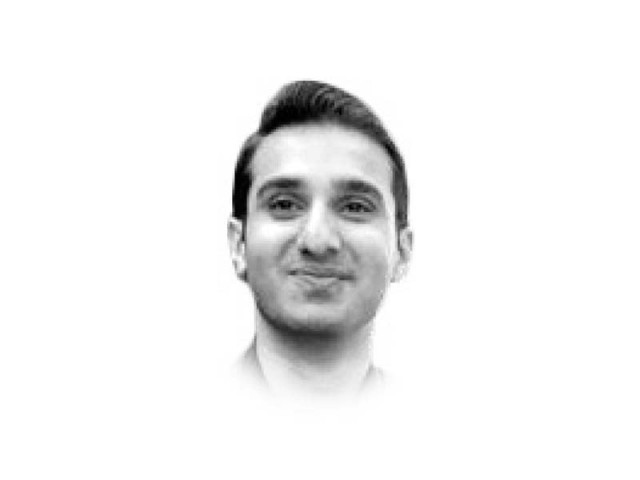No ramifications for lawyers’ rampages
Lawyers have little concern for repercussions; and as evident, it seems that there really are none for them

It is neither unprecedented nor inconceivable that Pakistan’s so-called defenders of justice — the members of the legal fraternity — once again halted court proceedings in a week-long demonstration of their might in Karachi. Strikes by the black coats earlier this month over contentions with a district and sessions judge eventually culminated in the transfer of said judge, and further choking of an already paralysed and backlogged legal system. Though such incidents are no longer staggering for onlookers, considering how oft-recurring they have been over the years across the nation, they leave the public disappointed in their failing protectors. No more than hoodlums, civil society continues to be dismayed by lawyers with each new occurrence, comprehending fully that no life or property, court, public area, or hospital would hold veneration for these mobsters in front of their own agendas. The plundering of the Punjab Institute of Cardiology (PIC) in 2019, resulting in the destruction of the hospitals and deaths of patients admitted there, reinforces the notion that our lawyers show little concern in committing crimes of moral turpitude.
In a country where lawyers can be found a dime a dozen, those who live up to the true moral, ethical and professional canons of their chosen field are rare species. Blame can be placed on the law colleges which continue to hand out admissions and degrees to students lacking aptitude simply to line their pockets with tuition money, turning into mass-producing factories. Few law schools follow the HEC-approved 5-year BA-LLB programme, and many continue on the old trajectory of simple 3-year LLB. Admission requirements and coursework evaluations are also not on a par with the international law school standards. A cherry on top, the so-called Bar Exams, which are to be cleared by every graduated law student to become an official advocate, fail to weed out the worthy from the rest. These exams are ludicrous, with leaked papers, sneaked-in books, and open cheatings with the help of invigilators themselves. The Bar Councils seem to care little for this, as lawyers are pawns required for the Bar Council Elections, hence the more, the merrier. In all this game of vested interests, what is left lacking is the actual competence required in a lawyer.
If the average lawyer is to be asked whether their brutish behaviour is justified, they will simply answer that it is the need of their line of work that they band together. For them, the formula is simple: do it, rather than have it done to you. Lawyers are so often caught in individual scuffles that a show of solidarity amongst the tribe and a collective front is the only way to keep themselves protected. This notion leads many lawyers towards a herd mentality, resulting in the destruction of court and public decorum. Court walkouts, hospital ransacking and public rows with groups of other professions, such hooliganism is not mere representations of the unbridled collective force lawyers hold, but rather, it also symbolises deeper shortcomings and inadequacies within the legal framework which asserts control over the actions of lawyers.
Lawyers, it seems, have little concern for repercussions; and as evident on many occasions, it seems that there really are none for them. The Bar Council issues their licences, and upon a complaint against a lawyer, the decision to rescind the licence is made by a disciplinary committee comprising members of the same Bar Council, under the Legal Practitioners and Bar Councils Act, 1973. Hence, it is lawyers adjudicating on grievances brought against other lawyers, resulting in a lack of appropriate disciplinary action in most cases. Even when the Lahore High Court judges formed a committee and required the licences of some loutish lawyers to be revoked, the request was not catered to by the Punjab Bar Council, and the lawyers continued to wreak havoc in the courts. Their power, it seems, is absolute and without any checks and balances. The legislators of our nation are therefore pleased to bring the necessary amendments to the statute which governs the Bar Councils of the nation and to revise within the 1973 Act the composition of the provincial disciplinary committees which conduct inquiries against lawyers regarding indiscipline and professional misconduct. Similar to the disciplinary committee of the Pakistan Bar Council provided under the 1973 Act, which includes a Judge of the Supreme Court, disciplinary committees of the provincial Bar Councils too must have judicial representation to level the ground and ensure objectivity and impartiality. This would further act as a deterrent for those who believe that wearing a black coat and tie gives them a free passage for uncouth and disrespectful behavior.
With the fear of repercussions in mind and the real possibility of losing their licence to practise, lawyers might think twice before disrupting court proceedings and acting disorderly in public. It is high time that such steps are taken to contain the black and white beasts and to remind them that their profession is about public aid and service in attaining swift justice, not impeding that path of justice for an already worried nation.
Published in The Express Tribune, June 24th, 2022.
Like Opinion & Editorial on Facebook, follow @ETOpEd on Twitter to receive all updates on all our daily pieces.















COMMENTS
Comments are moderated and generally will be posted if they are on-topic and not abusive.
For more information, please see our Comments FAQ